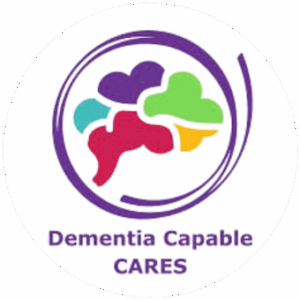Feelings of guilt are so prevalent among family caregivers that it even has a name: “caregiver guilt.” Many caregivers feel guilty because they believe they’re not providing adequate care; they experience guilt over feeling frustrated and angry about their chaotic life or lack of control, or over their need to take a respite care break.
Respite care is provided by a professional caregiver who assumes the responsibilities of a family caregiver who can then take some personal time to rest and recharge their batteries.
Respite care can be on an as-needed basis, or it can be regularly scheduled breaks like a few hours a week, a couple of days per month, or whatever other arrangement the family caregiver would like to make.
If you’re feeling guilty over using respite care or wanting to, here are five tips for leaving that guilt behind.
1. Realize the importance of your physical, mental, and emotional health.
Caregivers often put their own health on the bottom of their to-do list because of all their other responsibilities. Unfortunately, over time, this can cause them to experience physical and mental health issues, making their caregiving efforts less effective, to the detriment of their loved one.
Respite care gives you time to attend to your health needs. For example, you can use the time to schedule doctor and dentist appointments and other activities that support your health and enjoyment, such as a massage, yoga, or time spent reading or walking.
2. Speak with your respite care provider.
When you talk with the caregiver caring for your loved one, you can tell them what type of care needs they have, such as dietary restrictions, medication schedules, naps, and bedtimes, etc. This will not only lessen your guilt over using professional care but also give you peace of mind during your break, knowing that your senior loved one is receiving the care they need.
3. Keep in touch with your loved one during respite care.
Making frequent phone calls to your loved one while you’re gone can also reduce feelings of guilt and eliminate your fears that your loved one isn’t receiving proper care. If there are any concerns about the level of care being given, the home care agency you’re working with will be happy to handle them for you.
4. Involve your loved one.
You’ll feel much better if you let your loved one know that you need time for self-care. Discussing your personal needs and letting them know how respite care works will alleviate feelings of guilt.
Sharing a brochure or website information about respite care with your senior and emphasizing that their comfort, care, and safety will always be your top priority will also make you both feel better.
5. Give yourself permission to relax and enjoy life.
Everyone needs time off to rest, relax, and enjoy life, including family caregivers. Using respite care isn’t being selfish; it’s practicing excellent self-care, which makes you a better person and a better caregiver. So, stop and smell the roses regularly.
In addition to respite care, our highly trained caregivers can deliver other in-home services like light housekeeping, personal care, dementia care, medication reminders, transportation, and even live-in or 24-hour care.
To learn more about our flexible rates and hours, or to schedule a FREE initial consultation for a senior in your area, visit us online or call us today!














